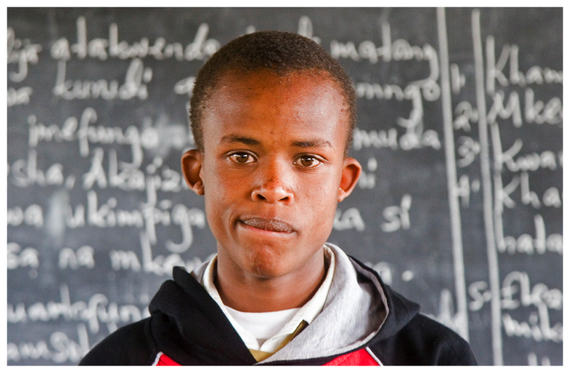Theatre Teaching Philosophy

Different countries have tendencies to foster different types of theatre theory and learning. I am in a somewhat unique position of having extensive training in both Canada and France which has led me to have a good understanding of David Mamet’s objective based theory, Stanislavski’s method, Viola Spolin’s inclusionist theory and Philppe Gaulier’s theory of games. Having such an array of theatre methods at my fingertips is incredibly valuable in a teaching situation, where variety can keep classes challenging and offer different ways to access the same material.
In 2006 I taught theatre to 12-18 year olds in Tanzania, Africa. I set up my own teaching program to incorporate theatre into the local school’s program. There were no arts classes present so I convinced the school board to let me teach a free after school program. Through the project, I worked alone setting up my own lesson plans and adapting them to the abilities of the children. After each term my groups presented plays to the entire school, to the delight of the teachers and other students. Subsequently I have also been a teaching assistant at Classworks Theatre in Cambridge, UK. Last year I taught three courses at the Ottawa School of Speech and Drama. They included an ensemble class for 9-11 year olds, an outreach class for disadvantaged youth aged 8-12 and a week long spring break improvisation class.
In addition I find that there are many similarities between directing and teaching. In both it is necessary to bring every person together on the same page while at the same time incorporating everyone’s creative input. It is also important in both to bring the best out of each person. Furthermore, my directing has also been about creating projects, planning their evolution and bringing them to fruition. Similarly, classes need to be planned, managed and brought to fruition.
I believe strongly in the power of extra-curricular theatre programs to foster confidence, and allow creativity to flourish especially since I am a product of these after school programs myself.
In 2006 I taught theatre to 12-18 year olds in Tanzania, Africa. I set up my own teaching program to incorporate theatre into the local school’s program. There were no arts classes present so I convinced the school board to let me teach a free after school program. Through the project, I worked alone setting up my own lesson plans and adapting them to the abilities of the children. After each term my groups presented plays to the entire school, to the delight of the teachers and other students. Subsequently I have also been a teaching assistant at Classworks Theatre in Cambridge, UK. Last year I taught three courses at the Ottawa School of Speech and Drama. They included an ensemble class for 9-11 year olds, an outreach class for disadvantaged youth aged 8-12 and a week long spring break improvisation class.
In addition I find that there are many similarities between directing and teaching. In both it is necessary to bring every person together on the same page while at the same time incorporating everyone’s creative input. It is also important in both to bring the best out of each person. Furthermore, my directing has also been about creating projects, planning their evolution and bringing them to fruition. Similarly, classes need to be planned, managed and brought to fruition.
I believe strongly in the power of extra-curricular theatre programs to foster confidence, and allow creativity to flourish especially since I am a product of these after school programs myself.
